|
Genres, Themes, Actors, and Directors:
- Detectives and Private Eyes
- Eddie Murphy Films
- Ex-Cons
- Nick Nolte Films
- Race Relations and Racism
- Search
- Walter Hill Films
Response to Peary’s Review:
Peary writes that this film about a “racist San Francisco detective [who] springs black thief-conman Eddie Murphy” (in “his debut”) “from prison for 48 hours to help track down Murphy’s former partner” is almost as if Rod Steiger and Sidney Poitier from In the Heat of the Night became partners without resolving their differences or hiding their hatred for one another.” He points out that “their ‘hip’ verbal battles are continuous (and eventually annoying) and they even come to blows” — but “of course, since they are both misfits with singular talents, they come to respect one another.”
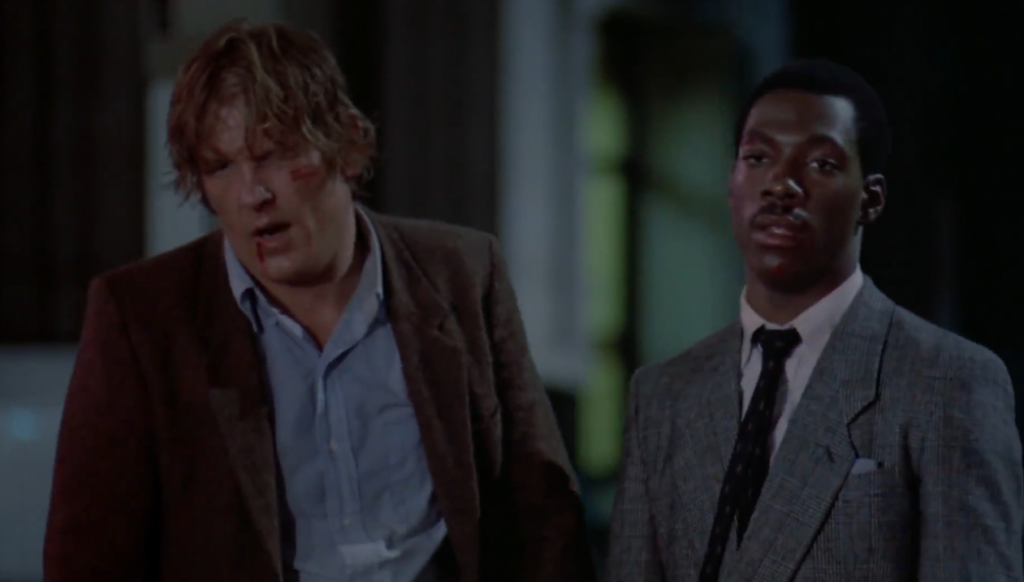
He notes that while “brawny Nolte and skinny Murphy work well together,” “Roger Spottiswoode’s dialogue is too calculated for audience response [and] laughter.” He argues that the film’s “best sequences are those with violence and action.”
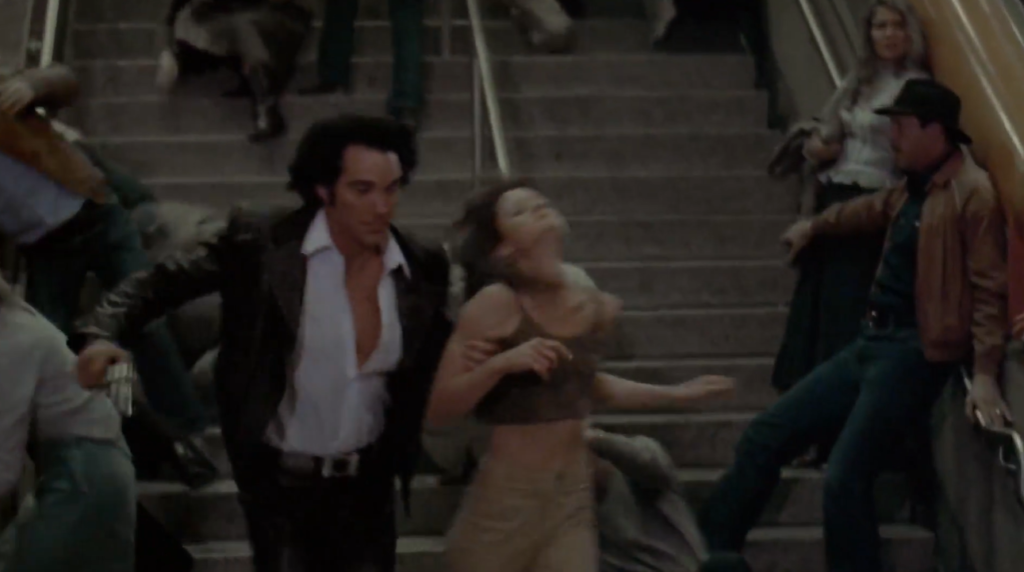
This “mismatched buddy cop” flick is notable as one of the first of its kind (or at least the title that seriously sparked the subgenre), and it’s held up reasonably well despite its flaws. Hill’s direction is confident as always, and good use is made of location shooting in San Francisco (and Los Angeles).
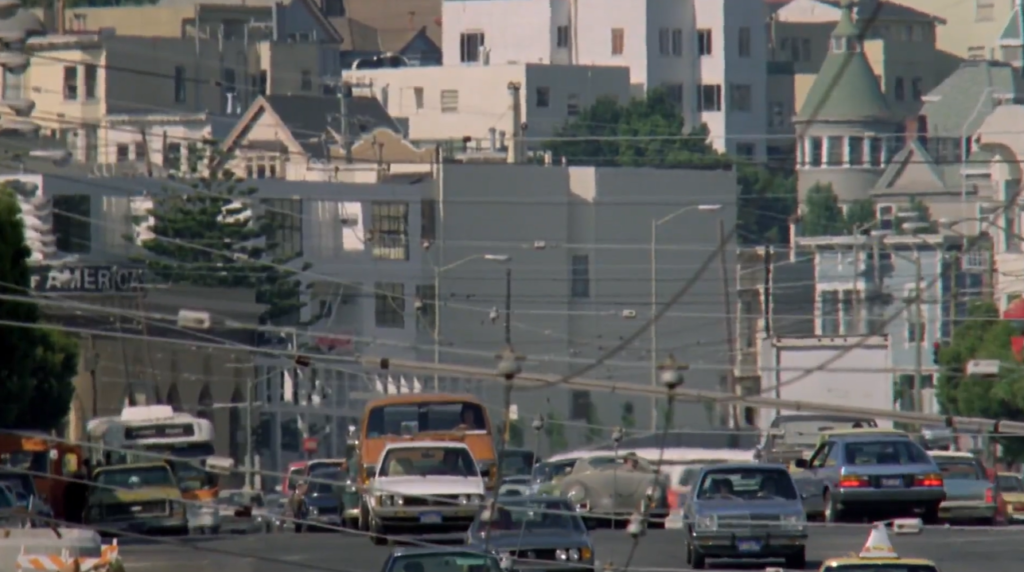
While it’s not must-see viewing, this remains worth a look for its historical significance as Murphy’s breakthrough cinematic role.
Notable Performances, Qualities, and Moments:
- Eddie Murphy as Reggie Hammond
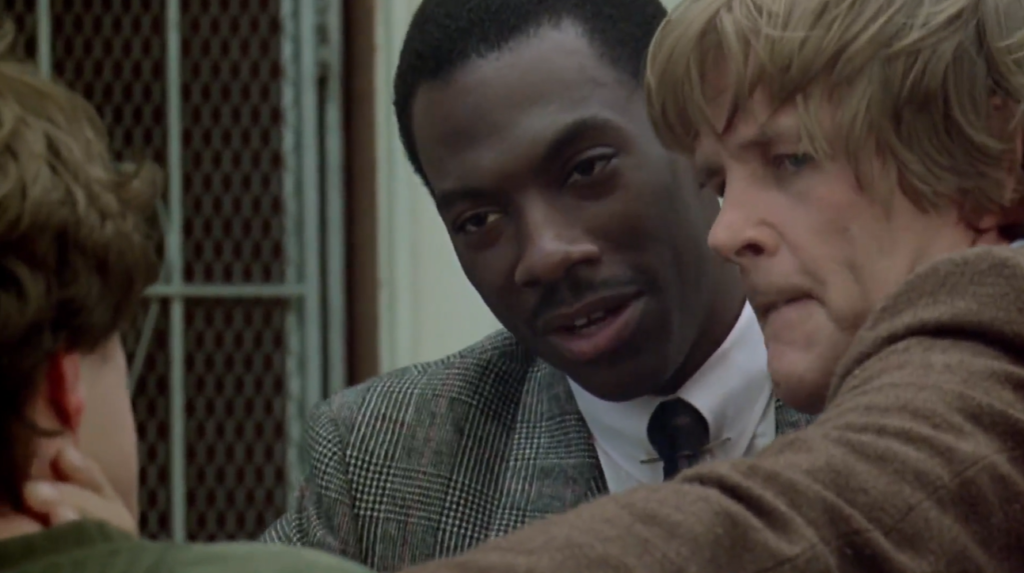
- Nick Nolte as Jack Cates
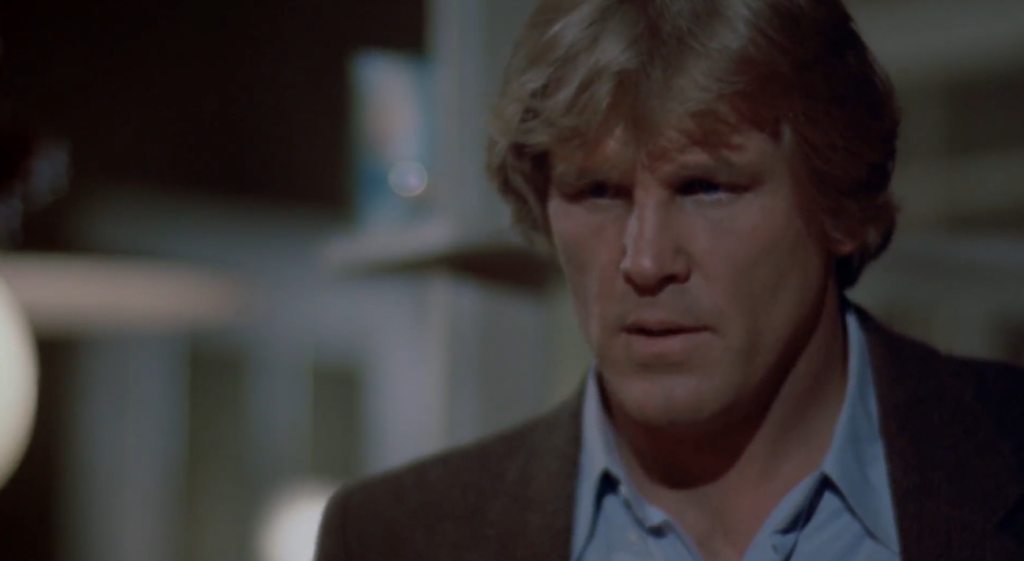
- James Remar as Albert Ganz
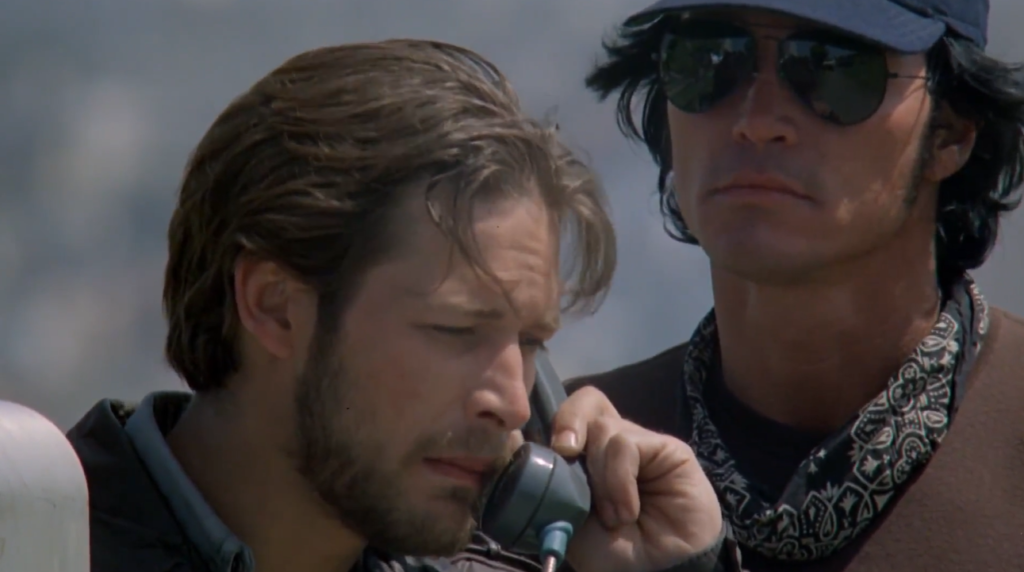
- Ric Waite’s cinematography
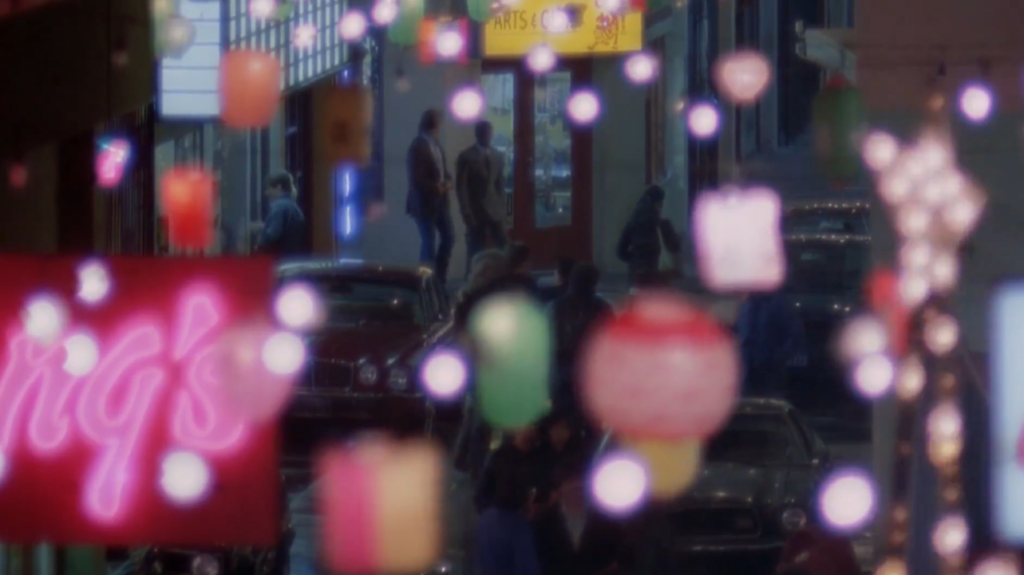
- James Horner’s score
Must See?
No, but it’s recommended for its status as an ’80s buddy-cop classic.
Links:
|
4 thoughts on “48 Hrs. (1982)”
One of the first ‘R-rated’ films I ever saw at the cinema and the first where I went by myself. I was 14/15 in 1982 so have no idea at this late date how I and my younger friend managed to get into it. I know we didn’t sneak in like we did the year before with Stripes (1981).
This remains a first-rate buddy-cop action film and one of Hill’s best films. I think it does rate as “must-see” due to being Murphy’s breakout role (and still arguably his best) and for being so influential on the policier in the ’80s and ongoing.
⭐️⭐️⭐️1/2 out of ⭐️⭐️⭐️⭐️
First viewing (3/3/21). Not must-see – but it’s moderately pleasing for those who like this kind of ‘buddy flick’.
Considering what a huge success this film was on its release, I’m surprised it’s not better than it is. It starts out promisingly in its opening scenes and director Hill establishes both mood and tension in a way that seems to guarantee smooth narrative sailing.
But overall this is a patchy affair that only comes alive in spots. The screenplay seems slapdash and much of the dialogue appears to be trying too hard to be hip. Sometimes this applies to the exchanges between Nolte and Murphy (though, interestingly, Nolte revealed in a 2008 book that much of their dialogue was improvised – and, admittedly, some of it is fine and Murphy has the occasional effective zinger).
Hill handles some of the action scenes well – esp. in Remar and Sonny Landham’s initial hideout in the sleazy hotel and later in the subway system..
As for a prominent scene in a nightclub… were those songs the best they could furnish for a swinging hot spot?!!
None of the women in the film fare well as characters; as Nolte’s gf, Annette O’Toole is esp. badly written and she doesn’t seem to understand that being the gf of a cop doesn’t leave her in the position of being demanding.
Annette O’Toole’s character was completely wasted (and poorly used, as you note).
She’s not the focus of the story.